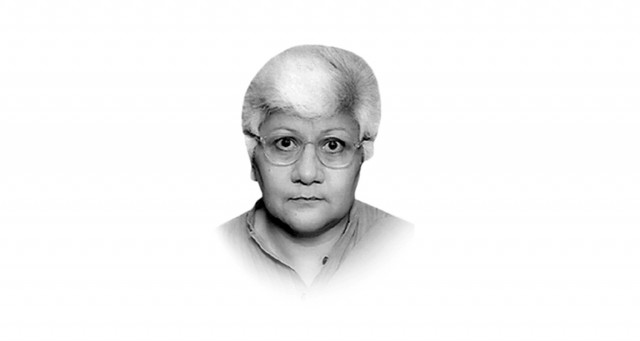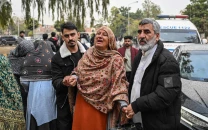Education and devolution
The creation of Pakistani nationhood meant a move from diversity to homogeneity of our curriculum.

The tension between a homogenised ‘national’ curriculum and one more representative of a plural and diverse polity was discernible as early as the period of Ayub Khan, when a centralised state was being constructed. The creation of Pakistani nationhood meant a move from regionalism to nationalism, from diversity to homogeneity. Ayub Khan was eager to see education perform the function of nation-building by erasing older identities in favour of the new one that was still in infancy and too tenuous to be a reliable identity. In a speech in 1961, Ayub Khan emphasised the need “to undergo similar educational curricula… the standard of values becomes common and from that cohesion emerges national feeling”. In several of his speeches, he bemoaned the absence of homogenisation in West Pakistan and, while referring to the federating units, asserted that “these units were a serious impediment in the way of political and economic growth”.
The Report on the Commission on National Education (commonly known as the Sharif Report, 1959) fused the concepts of nationhood and citizenship with those of religion and patriotism by declaring that “the importance of creating a spirit of nationhood in all Pakistani citizens cannot be overemphasised. As a newly emergent nation, Pakistan must consolidate and develop the concept of Pakistani nationhood with particular emphasis on Islamic values. The school has a major role to play in the process, not only by training the men and women who will love and serve the nation and make sacrifices for it, but also in developing the characteristics of good neighbours, good citizens, and the patriot”. A state that was moving towards total centralisation required not only homogenisation of thought, but an identity of values through the instrumental use of religion, along with a steady supply of ‘patriotic’ citizens to support the imagined vision of a singular nation. Education was the prime instrument ideally suited for the steady supply of national sentiment, patriotic passion and religious belief — all three specially tailored to the needs of dictatorship.
Nationalism was always a contested concept, fragile and insecure from its inception. The disruption in the discourse of official nationalism came from the provinces and regional identities. The Sharif Report repeatedly denounces these forces. For example, it says: “The disruptive forces of communalism, regionalism and provincialism came to the fore in the subcontinent… After the first great surge that launched the nation, the magic was gone…. In a situation where the overriding objective is that of nation-building, and where there exist these centrifugal forces of regionalism, indiscipline and non-cooperation, the immense tasks to be accomplished can only be carried out when a strong and responsible leadership emerges”. The ruptures, from suppressed and silenced voices, in the neatly stitched fabric of the nation, are attributed to indiscipline and lack of cooperation. This, in turn, is used to justify authoritarian rule by invoking the idea of a ‘strong and responsible leadership’. Centralised education was thus made the handmaiden of authoritarian ideology and dictatorial practice.
The debate over the control of ideology resurfaced many times in Pakistan’s history, most recently in the attempt by Abid Sher Ali of the PML-N and Sardar Assef Ahmad Ali of the PPP to resist the devolution of the education ministry on various pretexts, the most disingenuous being the idea that the provinces are not equipped to handle education. Abid Sher Ali reportedly said that if the provinces were allowed the preparation of the curriculum and syllabus, it would seriously impair national identity, and said that “we don’t want to lay foundation of disharmony and cacophony”. The education minister expressed similar views in arguing that the curriculum and syllabus have to be national and unified, not provincial. These proposals, contended the minister, would be harmful for national unity if every province has its own curriculum and syllabus.
Reviving the arguments of the era of dictatorship, representatives of parliamentary parties comprising the National Assembly Standing Committee on Education recommended that the core curriculum must be uniform for the sake of national integration and cohesion. Phrases such as ‘national integration and cohesion’ are reminiscent of the Sharif Report in which they occur several times, reflecting a fear of diversity and difference. Former education minister Zubeida Jalal went to the extent of saying that “the plan to hand the education ministry to the provinces is a threat to the federation”. A fragile and insecure state fears that forbidden knowledge from below, from the subterranean realms of consciousness, might unleash the forces of dissent.
Knowledge is dangerous for knowledge is power. Those who seek to attain, retain and maintain power cannot afford to relinquish it to the suppressed and subjugated of this world as it can potentially liberate them. Local knowledge, folklore, tales, legends and the wisdom contained therein can subvert official knowledge carefully crafted in government bureaucracies to produce a docile and subservient citizenry.
To counter the ideologies packaged and disseminated by a national security state obsessed with India, war and enmity, it is imperative to devolve education. This would wean knowledge away from serving the ends of the security state and simultaneously recognise the diversity and pluralism inherent in society. One caveat is that while framing the curriculum the provinces must adhere to the fundamental rights granted in the constitution so that women’s rights and minority rights may be upheld. Secondly, it is important to base the curriculum objectives on pedagogical needs to serve the ends of learning, rather than on the political or ideological imperatives of the ruling elite.
Published in The Express Tribune, April 21st, 2011.



















COMMENTS
Comments are moderated and generally will be posted if they are on-topic and not abusive.
For more information, please see our Comments FAQ